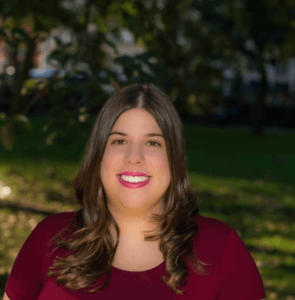Dialectical Behavior Therapy is all about balance. The definition of dialectical is finding the middle path (or balance) between two seemingly opposing ideas. Examples of dialectics are self-focused vs. other focused, dependence vs. independence, and emotion vs. reason. When you struggle with opposites such as these, it is called being in a dialectical dilemma. This can lead to stress and make it hard to manage emotions. Therefore, the goal is to find balance and walk the middle path.
DIALECTICS AS A WAY TO BETTER MANAGE EMOTIONS:
The dialectical dilemma of emotion vs. reason is at the core of how to better manage emotions. The idea is that we have 3 states of mind: emotion mind, reason mind, and wise mind. Wise mind is the middle path between our reason mind and our emotion mind. When operating from wise mind, one can accept and feel their feelings while also being practical and making effective decisions based on the logical facts. This allows one to better manage emotions rather than push them away or be controlled by them.

3 STATES OF MIND BROKEN DOWN:
Reason Mind…
is cool, rational, task-focused and is ruled by facts and logic. Reason is important because it gives us science and medical advancement, allows us to follow instructions, stay calm, and deal with practical things. The downside is that emotions are not considered at all and generally pushed away. Emotions are there whether we like it or not. Ignoring them will have long term negative consequences such as dissatisfaction or a big blow up after constantly bottling up emotions.
Emotion Mind…
is impulsive, mood dependent and is ruled solely by emotions; facts, reason, and logic are ignored. Emotions are beneficial because they give us compassion, motivation, and can be positive (happiness, love, etc.). The problem is that ignoring facts and logic completely is not an effective way to live life.
Wise Mind…
is one’s intuition and wisdom and is ruled by both reason and emotion. When in wise-mind, you account for all parts of a situation and tap into what is really best for you at that moment. Being in wise mind allows you to problem solve and better cope with stress so that you can be more effective and better manage emotions.
BENEFITS OF OPERATING FROM WISE-MIND
- More control over your thoughts and behaviors
- Improved management to regulate emotions
- Better ability to manage stress
- More effective conflict resolution
- Increased resiliency
- More effective interpersonal interactions
- Increased trust in yourself and your capabilities
- Ability to find more happiness and satisfaction in life
HOW TO LIVE IN WISE MIND
- Practice mindfulness. This means to be present focused and engage in the current moment.
- Be kinder to yourself. Look out for when your inner dialogue is critical and harsh. Then replace it with encouraging and kind words.
- Focus on the positive. For every negative thought or situation, find a positive in your life to be grateful for.
- Learn how to better communicate with and interact with others. This might seem like it should be intuitive, but dealing with other people is difficult and takes practice and effort.
- Learn coping skills and stress management techniques. The more options you have at your fingertips, the easier it is to use your wise mind to navigate through any situation.
- Take care of your needs. This includes physical and mental. If you are not making time for self-care, it is almost impossible to function in the world.
- Find a balance between your needs and the needs of others. Many people go to one extreme or the other, always putting others first or not taking others into consideration at all. It is important to be your own number one priority. You can’t do for anyone else if you aren’t taken care of first. At the same time, it is important to be compassionate and considerate of others and know how to compromise.
- Get help when you need it. Remember that it’s ok to ask for outside support. This can be anything from reaching out to family and friends or seeking out a professional. Everyone needs helps from time to time and making sure to recognize when you need it and making sure to find it is an important life skill

Alyssa Mairanz, LMHC, DBTC
Alyssa Mairanz provides counseling and therapy services for life transitions, relationship issues, self esteem, depression, anxiety, and DBT and Psychodynamic therapy in a NYC group practice in the Flatiron District near Madison Square Park. She also serves the Village, Chelsea, Union Square, the Financial District and the surrounding areas.
Empower Your Mind Therapy’s mission is to helps our clients build the life they want and find more happiness and satisfaction.



